News

Pennsylvania Insurance Department blocks $85.3 million in personal auto premium increases
[Ed. Note: Over the past 3 years we have heard little from states' Department of Insurance in what has been a rate friendly environment. Total private passenger auto premiums alone, topped $5.3B in PA in 2024, thus $85M savings is perhaps a footnote in contrast. Multiple sources indicate 7% higher auto premium rates in 2025 with the recently published Triple-I/Milliman study indicating a forecast 96% combined ratio. This begs a broader industry question - will we see more rate increase rejections ?]
The Pennsylvania Insurance Department (PID) says that during the first six months of this year, it blocked $210.1 million, including $85.3 million in personal auto, in requested annual property and casualty (P&C) insurance premium increases.
The PID blocked the increases through its rate review process, saving Pennsylvania consumers hundreds of millions of dollars, according to a press release.
“We’re halfway through 2025 and our actuarial staff has already surpassed what they saved consumers throughout the entirety of 2024,” said Pennsylvania Insurance Commissioner Michael Humphreys, in the release. “At PID, our review process is tough but fair. We carefully review and evaluate rate increases submitted to our department because we know consumers work hard for their money and that big increases can create big problems for Pennsylvania families.
“At the same time, we recognize that insurers’ costs are increasing as the cost of the products and services that they insure continue to rise and that certain rate requests are justified as a result. PID will never approve rates that are excessive, inadequate or unfairly discriminatory to Pennsylvanians.”
According to the PID, through June, its rate review process has saved consumers:
- $103.6 million in title insurance premiums;
- $85.3 million in personal auto premiums;
- $13.7 million in homeowners premiums;
- $5.0 million in personal umbrella premiums; and
- $2.5 million in other types of P&C insurance premiums.
AI in Insurance
The future of AI for the insurance industry | McKinsey
Once in a great while, a technological innovation comes along that changes the world, and businesses have to adjust—or potentially decline into irrelevance. The Industrial Revolution’s steam engine and the mechanization of production allowed for a shift from largely agrarian to urban lifestyles. The birth of the internet brought us enhanced real-time communication, e-commerce, cloud computing, and more.
Now, it’s AI’s turn. This powerful technology is rapidly transforming workflows, driving innovation, and reshaping industries. As with other transformative changes brought by technology, it will be hard if not impossible for companies, including insurers, to ignore AI. About two decades ago, as e-commerce became ubiquitous and more sophisticated, consumers got used to seamless ordering and fast delivery and came to expect those capabilities from all merchants. Similarly, AI has changed consumer expectations to the point that customers now expect higher accuracy and reliability during the consumer journey, human-like conversations with AI bots (whether text- or voice-based), hyperpersonalized offers and communication, and on-demand products and interactions tailored to their needs.
The future of work is agentic
Gen AI and agentic AI in particular can be game changers. One key difference from previous technological leaps is that gen AI is capable of levels of reasoning, judgment, creativity, and empathy that far exceed previous innovations’ capabilities—skill sets with particular salience to insurers. That’s why gen AI has the capacity to truly transform the insurance industry. COMPLETE REPORT
Fraud
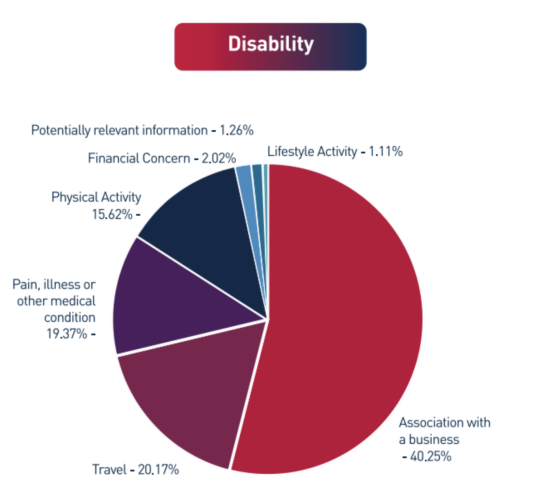
Disability Claims Lead Online Injury Fraud as Carpe Data Maps U.S. Hot Spots | Insurance Innovation Reporter
Disability claims are the most common source of online injury fraud, according to Carpe Data’s 2025 Online Fraud Insights Report.
Carpe Data Las Vegas, Jacksonville, and Los Angeles top cities for suspected fraud; Gen Z claimants frequently flagged via Instagram
Carpe Data (Santa Barbara, Calif.) has found that disability claims are the most common source of online injury fraud, according to the company’s newly released 2025 Online Fraud Insights Report. The study identifies trends in where and how insurers detect fraudulent activity, highlighting the increasing role of digital evidence in combating suspicious claims.
Carpe Data’s analysis shows that 8.9 percent of disability claimants were found to have misrepresented their injuries, outpacing workers’ compensation at 6.9 percent and auto claims at 5.7 percent. The report underscores how online monitoring is changing fraud detection, as traditional methods still examine only about 5 percent of open injury claims.
Research
Home insurance costs so much now that people can’t pay their mortgages. Another looming threat could make things even worse. - MarketWatch
In the span of a year, Otto Catrina’s property-insurance premiums went up from $7,000 to $12,000.
The real-estate agent, who has a home in the Sierra Nevada mountains close to Yosemite National Park, is on the California FAIR plan, a state-run insurer of last resort for people who can’t get insurance through a traditional insurance company. Catrina has been on the FAIR plan for about three years for his mountain house.
“I mean, it’s just crazy,” Catrina told MarketWatch about the sudden price increase, which happened even though he hadn’t filed any major claims.
Even if aspiring home buyers can qualify for a mortgage, some can’t ultimately go through with the purchase because they are unable to obtain the required insurance due to the high cost, Catrina told MarketWatch. “They can’t buy it because they can’t afford it,” he said. “That’s diaper money, that’s money for food that you’re taking off the table.”
Owning a home has long been at the core of the American dream. But millions of home buyers and homeowners are now waking up to a nightmare of ever-rising insurance costs. After jumping 20% between 2022 and 2024, the average annual cost of home insurance is projected to go up by 8% by the end of 2025, according to the insurance-comparison website Insurify.
The average homeowner is expected to spend an additional $261 on insurance premiums this year. Climate change and tariffs are are likely to to push up insurance costs, as homes sustain more damage from natural disasters and costs to repair them rise.

1 in 4 downgrading or dropping insurance to afford necessities, 77% say they wouldn’t go without it
A survey of 1,000 Americans has found that the majority are decreasing their auto insurance coverage and putting off big purchases to make ends meet due to “rising cost of living and fears of a looming recession.”
The Guardian Service survey found that 24%, or nearly 1 in 4 people, have downgraded or dropped insurance to free up cash, and 1 in 3 said they would temporarily go without insurance to free up funds for necessities. Thirty-five percent have delayed or canceled plans to purchase a home (22%), car (8%), or both (5%) this year.
“Many households are ditching full car coverage for liability-only plans, so they’re essentially gambling with their financial future just to manage today’s bills,” Guardian Service’s VP Peter Kerr told PropertyCasualty360. “It’s a pretty risky tradeoff driven more by fear of debt than lack of awareness. It can sometimes be easy to see insurance as optional when finances are tight, but in all seriousness, that’s when protection is the most valuable. Skipping coverage during uncertain times is like cancelling your fire alarm during wildfire season.
“Rising premiums are pushing Americans to make impossible decisions,” Kerr said. “[F]or many households, insurance can feel like it’s ‘nice to have’ versus a ‘must have,’ especially for younger generations.”
The survey found that 1 in 5 would rather go without coverage than pay rising monthly premiums.
Seventy-seven percent said they view car insurance as a necessity and won’t go without it. Fifty-seven percent said the same of home insurance. Three percent said they consider car insurance a luxury and that they only keep it if they can afford it, and another 9% said it’s “nice to have” but go without it if they need to.
In the last year, 29% of respondents said they downgraded or canceled their insurance, according to the survey results. Car insurance was the No. 1 type of insurance that was downgraded or canceled at 15% followed by health (8%), homeowners (5%), pet (4%), and renters (4%). Eight percent downgraded from full coverage car insurance to liability.
On average, Americans pay $189 per month for car insurance and $169 for home insurance, according to Guardian Service.
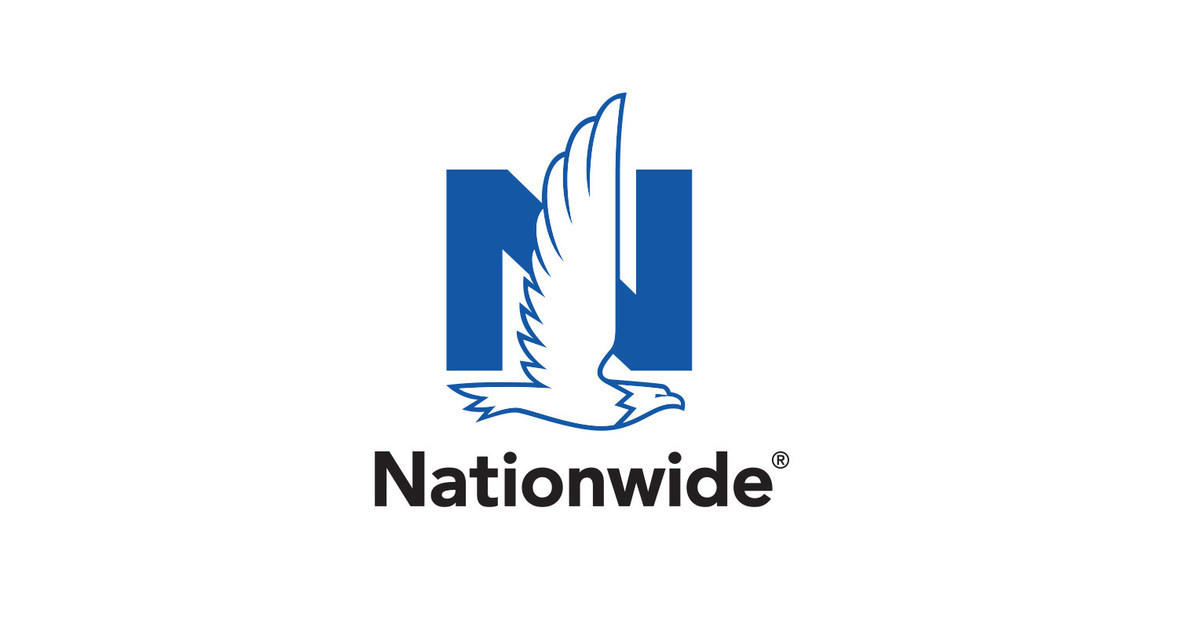
Two in five Pre-Retirees Say Dreams for Retirement Have Been Delayed, Altered or Cancelled
Pre-retiree investors (aged 55-65) are at the doorstep of retirement, yet the state of the economy is making them question whether retirement is even in their future. According to a new Advisor Authority study, powered by the Nationwide Retirement Institute, more than two-fifths (42%) of pre-retirees say their dreams for retirement have been delayed, altered or cancelled as a result of economic conditions seen in the last five years.
These conditions include the increased cost of living, cited by 51% as one of the biggest long-term challenges to their retirement portfolio, and inflation, with 15% saying they will retire later than planned because of it.
Possibly as a result, some pre-retirees are focused on building their savings over the next year, including one fifth (20%) who say their biggest financial concern over the next 12 months is saving enough for retirement. Many also plan to continue working in some capacity in retirement to preserve those savings. More than one third (35%) of pre-retiree investors are planning to work in retirement, and 27% say they're delaying their retirement – two approaches that are radically different from previous generations.
"Many pre-retiree investors saw their parents and grandparents retire with the confidence that came from having traditional pension benefits – benefits that are much less common today," said Craig Hawley, president of Nationwide Annuity. "It's not surprising that pre-retiree investors are questioning whether their dream retirement is even possible as they grapple with lingering inflation, market volatility and concerns about running out of money in retirement. As a result, we're seeing many of them abandon conventional retirement strategies used by previous generations. Rather than try to figure this out on their own, pre-retirees should lean into relationships with trusted financial professionals to build a plan that puts them in the best position for success."
Climate/Resilience/Sustainability
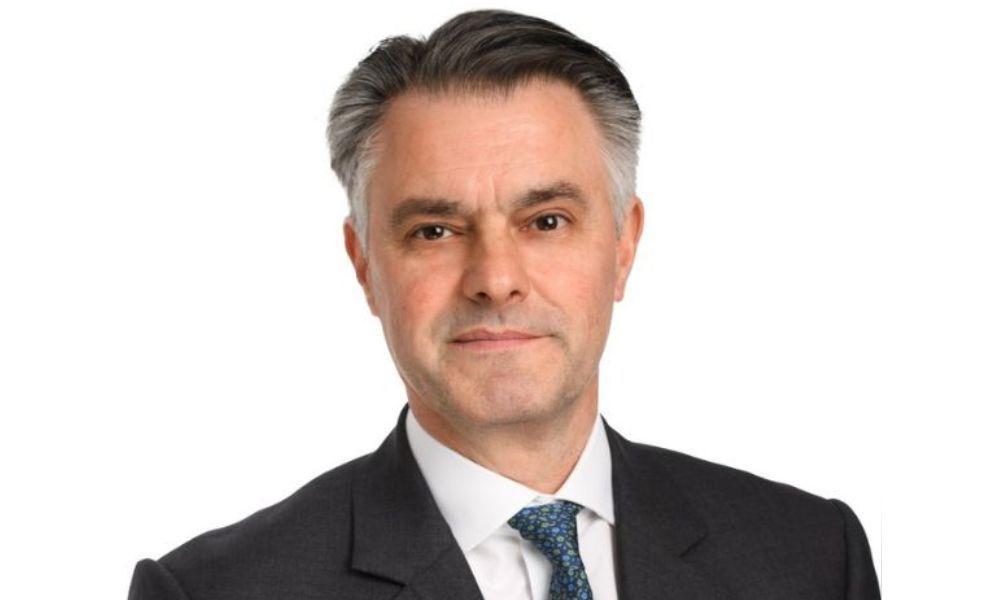
Global warming could push insured US hurricane losses to unprecedented highs – MS Amlin
A new study forecasts that insured losses from US hurricanes could increase by nearly 50% under a 2°C global warming scenario.
Global re/insurer MS Amlin’s research outlines changes in the frequency, strength, and geographic impact of hurricanes across the US East Coast. Areas traditionally considered less exposed to hurricane activity – such as New York and Boston – are expected to see the sharpest relative increases in loss estimates.
The report estimates that insured losses in New York could rise by 64%, with Rhode Island and Massachusetts potentially experiencing increases of over 70% in average annual loss. Florida is expected to face the largest absolute increase, with a projected 44% rise in insured hurricane-related losses.
Warming ocean temperatures are cited as a primary factor, allowing Category 4 and 5 storms with wind speeds over 130 mph to persist longer and reach farther north. In high-loss storm years, the Carolinas could see insured losses rise by 60%, which is approximately three times higher than the projected increases for Texas.
The study also modeled a repeat of the 2022 hurricane season – which produced US$62 billion in insured losses – under a 2°C warming scenario. In that case, losses would surpass US$90 billion.
The publication comes amid heightened catastrophe-related pressures across the sector. MS Amlin itself recently reported an increase in its net claims ratio, in part due to elevated hurricane activity during the past cycle
Triple-I: Texas Home Insurance Market Impacted by Complex Mix of Natural Catastrophe Exposures
The Insurance Information Institute (Triple-I) today published an analysis of the property/casualty insurance landscape in Texas, revealing a complex risk environment that has contributed to the Lone Star State ranking as the sixth-least-affordable for homeowners insurance in the United States.
“The catastrophic flooding in Central Texas exemplifies a troubling trend we have seen with events like hurricanes Harvey, Ida, Ian and Helene – devastating flood damage occurring far from storm landfall."
The devastating flooding that struck Texas Hill Country over the Fourth of July holiday weekend serves as a stark reminder of the state's evolving risk profile, according to Triple-I's new Texas Issues Brief. The flooding, caused by remnant moisture from Tropical Storm Barry, demonstrated how severe inland flooding related to tropical systems has become increasingly frequent and severe in recent years.
“The catastrophic flooding in Central Texas exemplifies a troubling trend we have seen with events like hurricanes Harvey, Ida, Ian and Helene – devastating flood damage occurring far from storm landfall,” said Patrick Schmid, Triple-I’s chief insurance officer. “In Kerr County, where the worst flooding occurred during the recent Hill Country disaster, only 2.5% of homeowners have flood insurance through the National Flood Insurance Program.”
InsurTech/M&A/Finance💰/Collaboration
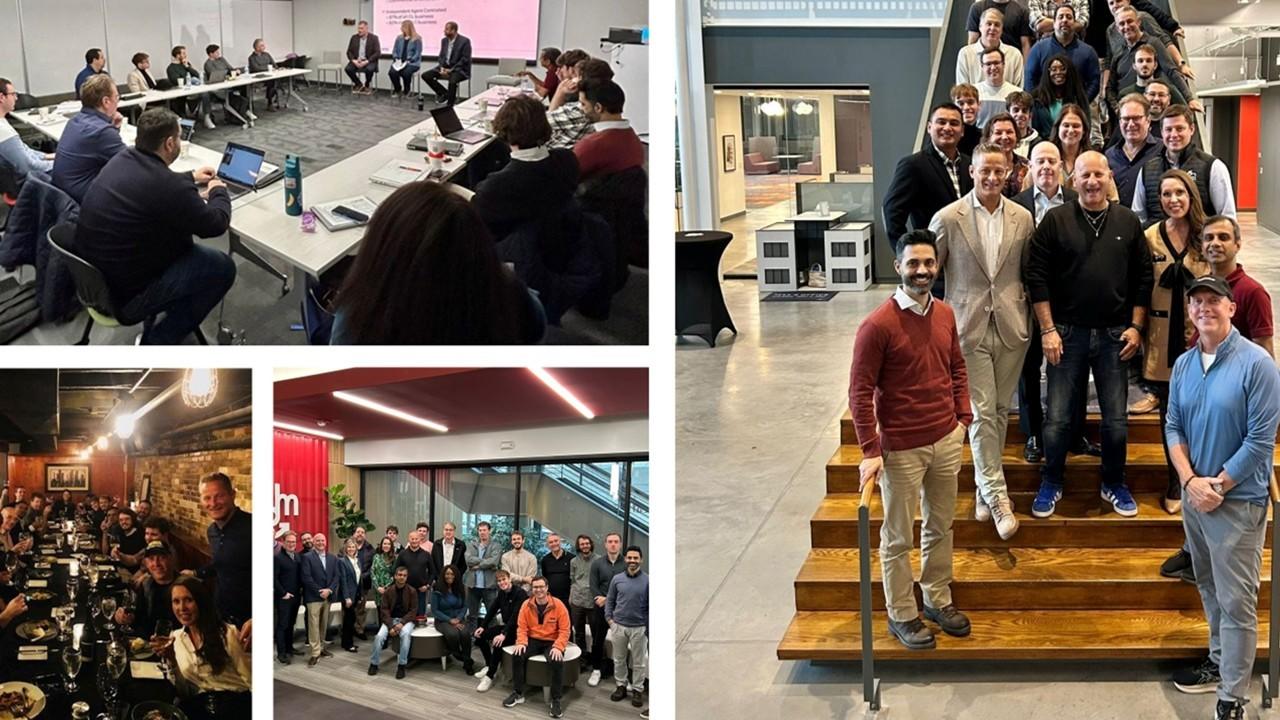
The Third Cycle of the International Accelerator: Connecting Startups to the Global Insurance Industry - Insurtech Israel News
Following two highly successful cycles, InsurTech Israel’s international accelerator is launching its third cycle, taking place this year in Munich. The program, which connects breakthrough startups with global insurance companies and investors, continues to serve as an ultra-innovative growth platform for entrepreneurs in the insurance and technology sectors. It is considered one of the world’s leading and most prestigious programs in the global insurtech field.
The remarkable success of the program in recent years has led to growing interest in becoming a partner and assisting in selecting top startups. Increasing attention is coming not only from startups but also from international insurance companies and investment funds, who recognize that the AI revolution is reshaping the rules of the insurance industry. Outstanding insurtech solutions are now emerging not only from
Europe and the U.S., but also from regions that were previously off the radar. From major financial hubs to countries and continents that historically lagged behind in this sector, there are now exciting opportunities to discover groundbreaking technological solutions.
This year, the program is held in collaboration with InsurTech Hub Munich and continues its cooperation with our international partners, who once again selected the representatives participating in the program. These partners include major organizations and hubs in the global insurance industry, bringing their expertise to support participating startups. This joint selection process ensures that each startup is matched with the most suitable opportunities in the global market.
Death of Pilots and MGA Burn: Execs Offer InsurTech Partnership Basics
ingredients of successful carrier-InsurTech partnerships, according to a group of executives who spoke at a recent webinar about their experiences in joining the two sides together.
In addition, one InsurTech founder led off Carrier Management’s InsurTech Summit 2025 highlighting the need for “timeline compatibility”—and predicting the “death of pilots” as a step in the development of future alliances that will minimize incompatibility.
Near the start of the event, Carrier Management Deputy Editor and Moderator Elizabeth Blosfield asked Margeaux Giles, chief executive officer of Irys Insurtech, to describe some of the steps InsurTechs need to take when they’re seeking to partner with traditional insurers. Giles responded by first giving her perspective on what she called “pilot purgatory.”
“From a tech startup perspective, depending on how you’re funded,…typically, we have something called a runway—and that runway does not last forever,” she said referring to funding options of bootstrapping and venture capital. “Unfortunately, the cycle of a startup’s runway versus the sales cycle of selling into insurers—they’re just not one to one….
“It’s been a significant hurdle because the tech providers are not actually living long enough to see through some of these things,” she said, describing tech providers’ experiences of getting “stuck in a pilot for two or three years….trying to prove out a theory or thesis”—her definition of pilot purgatory. MORE
Today
The insurance industry can win back trust using technology | World Economic Forum
Insurance is evolving, with embedded insurance providing convenient coverage that could account for a third of all insurance products by 2028.
The insurance industry sells trust but research shows that younger generations do not trust insurance products.
The real test isn’t growth, it’s whether new models can close the insurance “protection gap” and win back a lost generation.
Every year, policyholders hand over billions in premiums, cross their fingers they’ll never need to claim and when they do, they’re often left confused by the fine print.
An industry designed to protect people has instead buried them in a sea of legal complexity, hidden exclusions and profit-first incentives. It has been built to protect balance sheets more than the humans it promises to cover. What’s more, until now, customer-first innovation or real evolution has been lacking for decades.
At the centre of this shake-up is a concept commonly known as “embedded insurance”. Instead of forcing people to jump through hoops directly with insurers or brokers, embedded insurance weaves cover directly into the products and services people already use.
According to Boston Consulting Group, embedded insurance is projected to grow from $13 billion to over $70 billion in gross written premiums by 2030. That’s not incremental growth, it’s an industry rewriting itself.
Awards
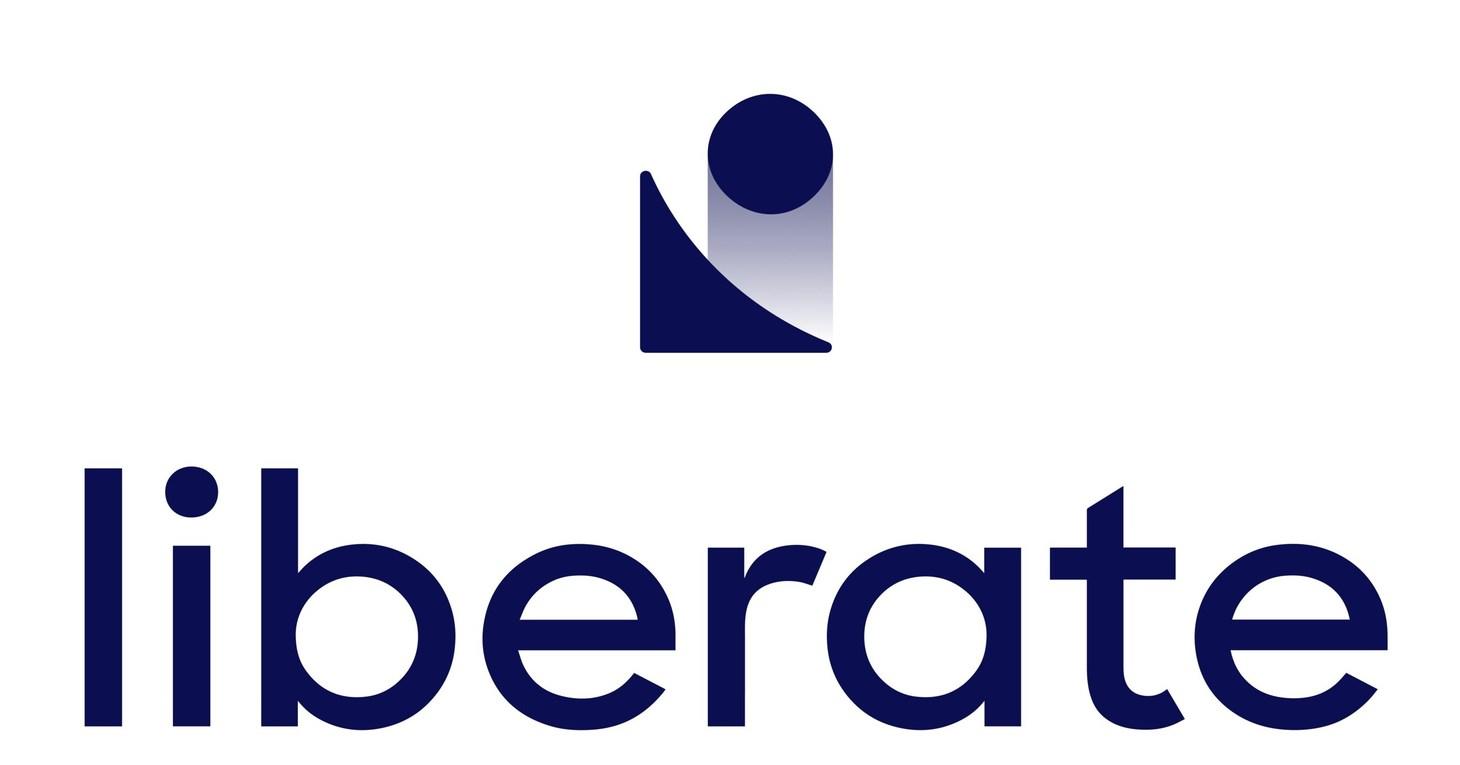
Liberate Named to PropertyCasualty360's 2025 Insurance Luminaries for Revolutionizing Voice AI in Insurance
[Ed. Note: Congratulations to Liberate and co-founder and CEO who we first met back at Metromile and thereafter during very early stages of tackling the many challenges within reporting and starting claims (FNOL) efficiently. Despite the past limitations of chatbots, Liberate has found ways to succeed with Voice AI and is well deserving of this honor]
Liberate has been recognized as one of PropertyCasualty360's prestigious Insurance Luminaries Class of 2025. This is bold recognition of the company's trailblazing work at the intersection of intelligence and insurance.
As the force behind the breakthrough conversational Voice AI platform already at work for the leading carriers and agencies in the P&C sector, Liberate is proud to be recognized for driving meaningful innovation, transforming insurance customer experience and setting a new bar for insurance service accessibility.
A panel of industry experts selected the 2025 honorees, based on four criteria:
- How well they stated and achieved goals in one of five nomination categories
- How impactful their work has been
- How dedicated the nominee has been to furthering modernization and humanization in the P&C sector
- How committed and dedicated the nominee has been to high standards of ethics, service and excellence
"Insurance is a complex and intricate industry with what seems like a million moving parts," says Editor in Chief Elana Ashanti Jefferson. "That's why my team and I enjoy hosting the annual PropertyCasualty360 Insurance Luminaries honor. This professional recognition program allows us the chance to spotlight companies, organizations, programs, practices, teams and individuals that truly make a difference in insurance. These honorees pay homage to the industry's critical mission to make insureds whole after a major loss while powering forward with fresh ideas and modern tools for tackling today's challenging business conditions."
Liberate makes insurance processes more efficient for insurance companies and more convenient for policyholders through its always on, fully integrated and orchestrated Voice AI and FNOL solutions.
Podcast Sponsor

Audio Version - 'Connected: The Podcast' --- Sponsored by Pulse Podcasts
The 'Connected' Podcast by Alan Demers and Stephen Applebaum, is a condensed audio version of the day's ‘Connected' newsletter, a daily scan of all the happenings in the world of Insurance & InsurTech News.
Pulse Podcasts: Introduce a new way for your audience to hear your voice! We are a podcast creation service that helps businesses turn their written content, like blog posts and news articles, into beautiful podcasts. Our platform writes the script, records the voices, and mixes the audio to create engaging content for your audience. It's affordable and has super-fast turnaround!
LISTEN AND SUBSCRIBE BELOW
